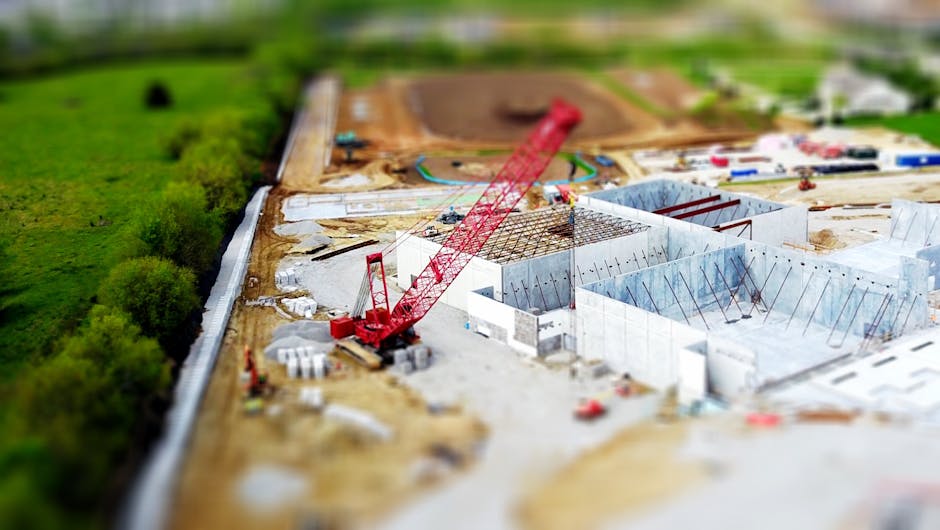Mastering the Art of Fieldwork: Creating an Effective Fieldwork Plan
Imagine being a researcher on the brink of an exciting fieldwork expedition, ready to delve into uncharted territories to gather valuable data and insights. The success of your fieldwork hinges on one crucial element: a well-thought-out and meticulously crafted fieldwork plan. In the realm of research and exploration, a strong fieldwork plan serves as the roadmap that guides you through the intricate process of data collection, analysis, and interpretation.
From anthropologists studying remote tribes in the Amazon rainforest to geologists examining volcanic activity in the Pacific Ring of Fire, every field researcher relies on a solid plan to navigate the challenges and uncertainties of their work. In this comprehensive guide, we will explore the intricacies of creating an effective fieldwork plan, uncovering the strategies, best practices, and key considerations that will elevate your fieldwork experience to new heights.
The Foundation of Success: Understanding the Purpose of Fieldwork

At the heart of any successful fieldwork endeavor lies a clear understanding of its purpose. Before embarking on your research journey, it is essential to define the objectives, goals, and expected outcomes of your fieldwork. Are you aiming to document a specific cultural practice? Are you seeking to analyze environmental changes in a particular region?
By clarifying the purpose of your fieldwork, you can tailor your plan to align with your research goals, ensuring that every aspect of your expedition contributes meaningfully to your study.
Setting the Stage: Preparing for Fieldwork

Effective fieldwork planning begins long before you set foot in the field. Adequate preparation is key to a successful research expedition, allowing you to anticipate challenges, mitigate risks, and maximize the efficiency of your data collection efforts.
During the preparatory phase, consider the following key elements:
Research Design: Define your research questions, hypotheses, and methodologies to guide your data collection process.
Logistics: Arrange transportation, accommodation, permits, and equipment to support your fieldwork activities.
Safety and Risk Management: Develop a risk assessment plan, including emergency protocols and contingency measures to ensure the safety of your team.
Stakeholder Engagement: Identify key stakeholders, such as local communities or research partners, and establish communication channels to foster collaboration.
By laying a strong foundation during the preparatory phase, you can streamline your fieldwork operations and increase the likelihood of achieving your research objectives.
The Blueprint for Success: Crafting a Fieldwork Plan

With a solid understanding of your research goals and thorough preparation, it is time to translate your vision into a comprehensive fieldwork plan. A well-crafted fieldwork plan serves as a roadmap that outlines the scope of your study, identifies key tasks and milestones, and allocates resources efficiently.
When creating a fieldwork plan, consider the following components:
Objectives and Scope: Clearly define the objectives of your fieldwork, outlining the specific research questions you aim to address and the scope of your study.
Methodology: Describe the research methods and techniques you will employ during data collection, ensuring they align with your research goals.
Timeline: Develop a detailed timeline that schedules key activities, milestones, and deadlines, allowing you to track progress and stay on course.
Budget: Create a budget that outlines the costs associated with your fieldwork, including expenses for transportation, accommodation, equipment, and personnel.
By meticulously planning each aspect of your fieldwork, you can enhance the efficiency, effectiveness, and overall success of your research expedition.
Adapting to Challenges: Flexibility and Contingency Planning

Fieldwork is inherently unpredictable, with a myriad of challenges that can arise unexpectedly during your research expedition. From inclement weather and logistical setbacks to unforeseen cultural barriers, field researchers must be prepared to adapt to changing circumstances and navigate challenges with resilience and creativity.
To address unforeseen challenges effectively, consider the following strategies:
Flexibility: Maintain a flexible mindset that allows you to pivot quickly in response to changing conditions, adjusting your fieldwork plan as needed to address emerging challenges.
Contingency Planning: Develop contingency measures and backup strategies to mitigate risks and uncertainties, ensuring that you have alternative courses of action in place.
Communication: Establish clear communication channels with your team, stakeholders, and support networks, enabling real-time updates and coordination in the face of challenges.
By embracing flexibility and proactive contingency planning, you can navigate the complexities of fieldwork with resilience and adaptability, turning challenges into opportunities for growth and innovation.
Building Bridges: Engaging with Stakeholders
Successful fieldwork is not conducted in isolation but thrives on collaboration and engagement with diverse stakeholders. Whether interacting with local communities, government agencies, or research partners, field researchers must cultivate meaningful relationships that foster trust, respect, and mutual benefit.
When engaging with stakeholders, consider the following principles:
Cultural Sensitivity: Respect the cultural norms, beliefs, and practices of the communities you work with, adapting your approach to ensure cultural sensitivity and inclusivity.
Collaboration: Foster collaborative partnerships with local stakeholders, recognizing their expertise, knowledge, and perspectives as valuable contributions to your research.
Communication: Establish open and transparent communication channels with stakeholders, sharing information, updates, and findings to build trust and rapport.
By prioritizing stakeholder engagement and building bridges with diverse communities, field researchers can enrich their research experience, gain unique insights, and contribute meaningfully to the communities they study.
Harvesting Insights: Data Collection and Analysis
Central to the success of any fieldwork endeavor is the rigorous collection and analysis of data that forms the foundation of your research findings. From conducting interviews and surveys to collecting samples and documenting observations, field researchers must employ robust methodologies and techniques to gather high-quality data.
During the data collection and analysis phase, consider the following best practices:
Data Collection: Follow established protocols and procedures for data collection, ensuring consistency, accuracy, and reliability in your research findings.
Data Management: Organize and store your data systematically, using digital tools and platforms to manage, analyze, and interpret your findings effectively.
Data Validation: Verify the accuracy and validity of your data through cross-referencing, peer review, and quality control measures, ensuring the integrity of your research outcomes.
By adopting rigorous data collection and analysis practices, field researchers can generate robust, evidence-based insights that inform their research conclusions and contribute to the body of knowledge in their field.
Sharing Discoveries: Disseminating Research Findings
The culmination of a successful fieldwork expedition lies in the dissemination of research findings to a wider audience, sharing insights, discoveries, and implications that contribute to scientific knowledge and societal understanding. Whether presenting at conferences, publishing in journals, or engaging with the public, field researchers play a vital role in communicating their research outcomes effectively.
When disseminating research findings, consider the following strategies:
Publication: Prepare research papers, articles, or reports that document your findings, methodologies, and conclusions, submitting them to peer-reviewed journals or academic publications.
Presentation: Deliver engaging presentations, talks, or workshops that showcase your research outcomes, highlighting key insights, implications, and recommendations for further study.
Outreach: Engage with diverse audiences, including policymakers, practitioners, and the public, to raise awareness of your research findings and foster dialogue on pressing issues in your field.
By sharing their discoveries and insights with the broader community, field researchers can amplify the impact of their work, spark discussions, and inspire future generations of researchers to continue the quest for knowledge and discovery.
Common Misconceptions about Fieldwork Planning
Despite the importance of effective fieldwork planning, there are several common misconceptions that can hinder the success of research expeditions. Let’s debunk some of these myths:
Myth: Fieldwork planning is a one-size-fits-all process. In reality, fieldwork planning should be tailored to the unique objectives, challenges, and contexts of each research project.
Myth: Fieldwork planning is only necessary for large-scale research projects. Whether conducting a small-scale study or a comprehensive expedition, fieldwork planning is essential to optimize the efficiency and effectiveness of your research.
Myth: Fieldwork planning is rigid and inflexible. While a well-defined plan is crucial, field researchers must also embrace flexibility, adaptability, and creativity to navigate the complexities of fieldwork successfully.
By dispelling these misconceptions and embracing the nuanced nature of fieldwork planning, researchers can enhance the quality, impact, and relevance of their research endeavors.
Conclusion: Charting the Course for Success
As we navigate the intricate landscape of fieldwork planning, one thing becomes clear: effective fieldwork planning is not merely a set of tasks to be completed but a dynamic and iterative process that requires creativity, resilience, and collaboration. By mastering the art of fieldwork planning, researchers can unlock new horizons of discovery, innovation, and impact, paving the way for groundbreaking research and transformative insights.
Whether you are a seasoned field researcher or embarking on your first expedition, the principles and strategies outlined in this guide can serve as a compass to guide you through the complexities of fieldwork planning, empowering you to achieve your research goals and contribute meaningfully to your field.
As you embark on your next research journey, remember that effective fieldwork planning is not just a means to an end but a transformative experience that shapes the course of your research, your career, and your impact on the world. So, set sail with confidence, curiosity, and conviction, knowing that the path to discovery is paved with careful planning, bold exploration, and unwavering dedication to the pursuit of knowledge.




